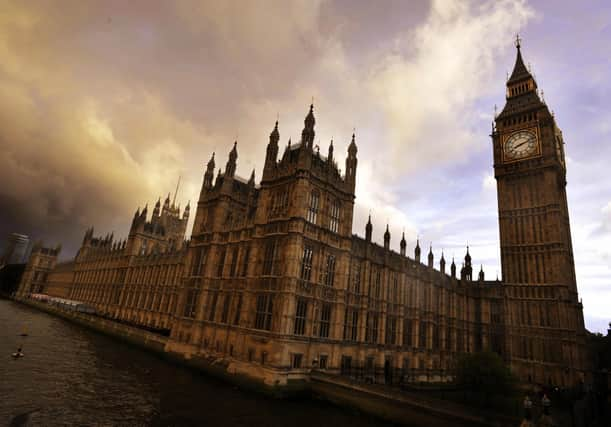Chris Albiston: With the Legacy Bill we have an opportunity to sweep away the vexatious campaign of ‘lawfare’ against retired servants of the state


The association which represents them, the Northern Ireland Retired Police Officers Association (NIRPOA) has never sought ‘amnesty’ for anybody, including police officers whether serving or retired, who committed crimes – and we stand by that position. But our members recognise that what is offered in the new legislation is the advertised ‘conditional immunity’ and not, as widely stated, ‘amnesty’.
The latter unconditional gift – a full amnesty – was reserved by UK governments to be used as a bargaining counter with the political representatives of the terrorists, a tactic that would be familiar to students of the history of the Republic of Ireland (which issued amnesties in the 1920s).
Advertisement
Hide AdAdvertisement
Hide AdThe reality is that the prospect of convicting anybody for historic offences is remote in the extreme, not only because of the well-known difficulties with evidence but also through legal challenges around abuse of process.
The new legislation offers the prospect of an end to the perpetual persecution of elderly retired public servants who tell the truth about relevant incidents. Most have already done so in the form of statements of evidence which were taken many years ago – and which are likely to be more reliable than any well-meaning efforts at a new recollection today.
We are told that the main thrust of the legislation’s creation, the Independent Commission for Reconciliation and Information Recovery (ICRIR) is, as the name implies and as the chief commissioner has stated, reconciliation. That this is a tall order should not be seen as a deterrent either to the commission in its efforts or to those who may be able to assist. The ICRIR is doubtless fully apprised of the fact that for some elements here, reconciliation is the last thing they want.
The commission will conduct investigations of qualifying historical incidents with outcomes which may involve reports to the Public Prosecutions Service (PPS), the granting of ‘conditional immunity’ and the production of reports. It is hoped that such information recovery and reporting may bring succour to grieving families.
Advertisement
Hide AdAdvertisement
Hide AdThe appointment of a former Lord Chief Justice as chief commissioner and a former senior police officer as Commissioner for Investigations surely allows us to hope that the ICRIR’s investigations will be significantly more professional than those of the Police Ombudsman for Northern Ireland’s (PONI) soon-to-be late and unlamented legacy department and that any reports which become public will be factual and evidence-based.
We do not wish to see any of the uninformed speculation and apparently baseless ‘opinions’ which characterised so many of PONI’s public statements. The prospect of reconciliation will most certainly not be enhanced by following the script of those who, for party purposes, seek to perpetuate the discredited myth of collusion.
In conducting inquiries in which the conduct of retired police officers is legitimately subject to scrutiny, the commission must adhere to all the relevant law and codes of practice for criminal investigations. Interviewees should have advance access to relevant notebooks, statements and force orders, and must be afforded free and independent legal advice.
The chief commissioner has stated that the work of the ICRIR will be compliant with the provisions of the European Convention on Human Rights (ECHR). We hope to see a significant improvement in the way in which the rights of retired police officers and their families are treated in relation to Article 6 (the right to a fair trial) and Article 8 (the right to private and family life).
Advertisement
Hide AdAdvertisement
Hide AdFurthermore the principle of no retrospective application of new standards, which is supposed to be enshrined in the ECHR (Article 7), must be rigorously upheld. There can be no more attempting to judge historical behaviour through an irrelevant modern prism, an anachronism which certain ‘human rights practitioners’ have tried to persuade UK judges to be legitimate.
Who will guarantee the independence of the Independent CRIR?
The proposed Investigative Oversight Board is policy rather than operations-oriented. The Investigative Assurance Group is not designed to hear complaints from outsiders. So will we have a repeat of the absurd 25 year saga of PONI, a body with police powers and absolutely no independent mechanism for dealing with complaints which do not reach the threshold of criminality (contrary to Article 13 ECHR, which says a government body must be open to scrutiny and complaints)?
And if the independence of the ICRIR is to be credible, there can be no migration of PONI personnel to its ranks. Nor can it take as advisors representatives of the usual suspects among the NGOs and legal firms who have made fortunes from the taxpayer through the legacy industry.
Advertisement
Hide AdAdvertisement
Hide AdAny academics who may be invited to assist must have proven credentials and demonstrable independence.
With new legislation, a new institution and some new faces we have an opportunity to sweep away the vexatious and expensive campaign of ‘lawfare’ against the servants of the state which has been waged on an organised basis for decades and replace it with genuine access for ordinary individuals to a process which is designed to foster reconciliation rather than to generate recrimination and profitable litigation.
Let us seize that opportunity.
• Chris Albiston is a member of the executive committee of NIRPOA. He was an assistant chief constable in the RUC and PSNI